.jpg?fit=max&w=800&h=2320&q=90&fm=webp)
Two worlds
20.02.2020 | Berlinale premiere "In the Fire"
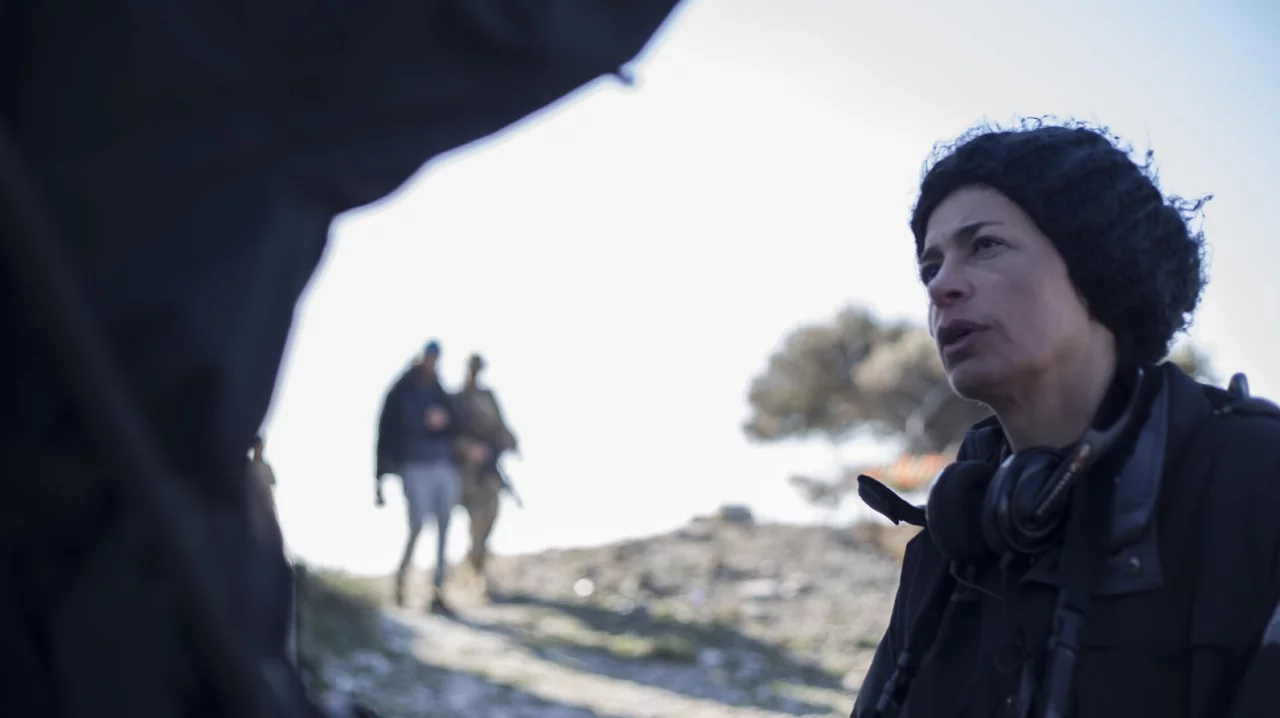
Script Writer and Director Daphné Charizani sends leading actress Almila Bagriacik to Iraq as a Bundeswehr soldier in her new Berlinale film "On Fire". We spoke to her about the filming and post production in Hamburg.
How did you come up with the story for "Im Feuer"?
Daphné Charizani: While researching another project, I got to know female soldiers from the German Armed Forces who had an Afghan and Kurdish migration background. The conversations with them and the insight into their biographies moved me greatly. The Bundeswehr has been active in these countries for many years through the mandate of the Bundestag, and these young soldiers are returning to the country of their parents, but in the uniform of their new homeland. I see this as a great metaphor for the present here in Germany too, where wars and their consequences for people have moved very close together, even though German society itself has lived in peace and security since the Second World War. I found this contrast absolutely worth telling.
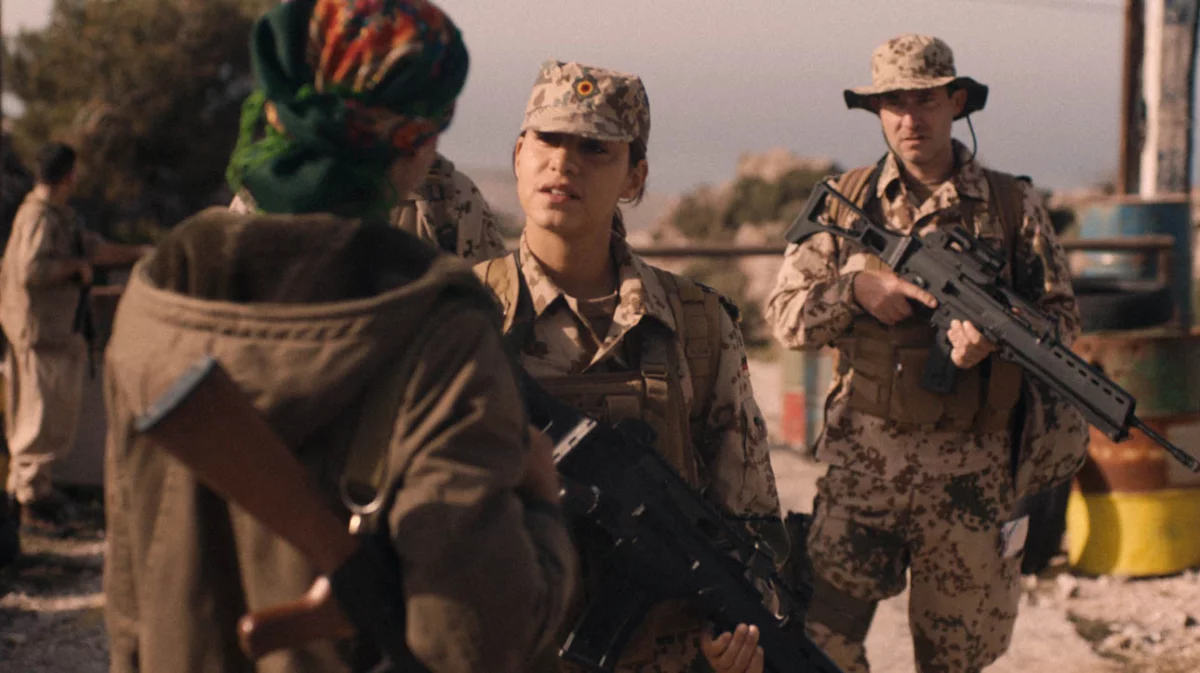
In your opinion, what did the leading actress have to bring to the table in terms of acting skills?
Daphné Charizani: Together with my casting director Ulrike Müller, I searched intensively for a suitable actress, and we decided in favour of Almila Bagriacik relatively soon before the shoot. She is not Kurdish, but as a Turkish woman who grew up here, she immediately understood the character's conflict. She has an energetic charisma, just like the women I met there. But female soldiers also have to have a certain physicality. She shouldn't have any prejudices: not only no prejudices against Kurds, but also no prejudices against Bundeswehr soldiers - and all of that fitted with Almila.
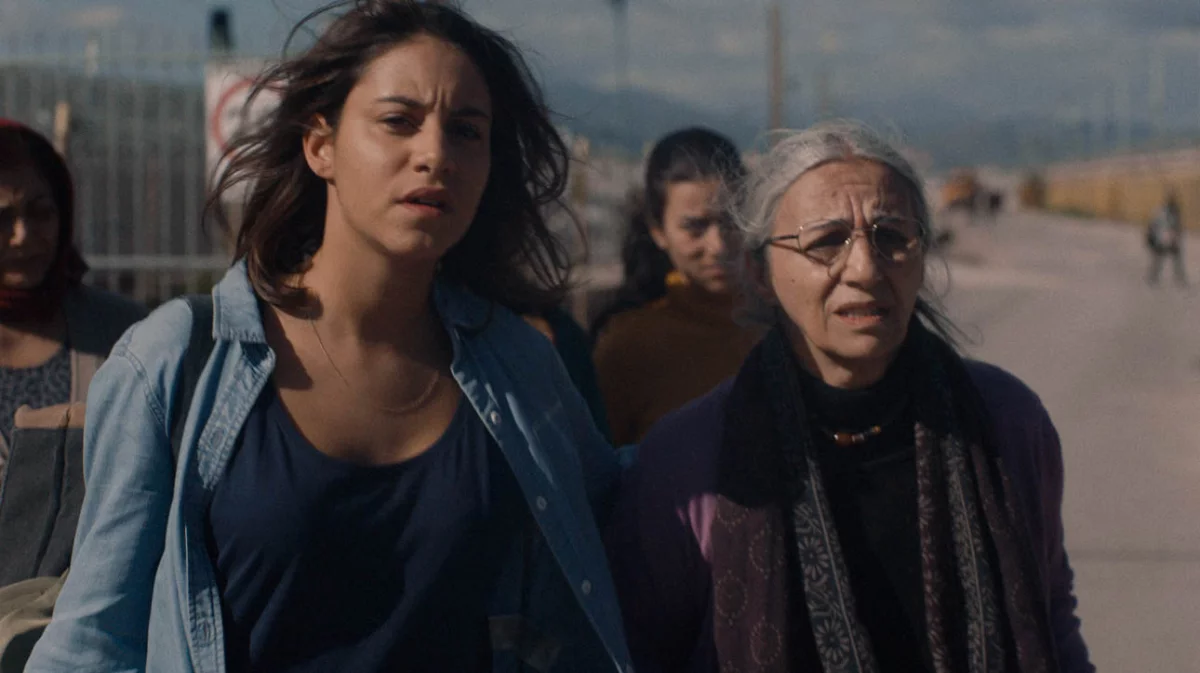
Which production steps were carried out in Hamburg?
Daphné Charizani: My musician Florian Tessloff is from Hamburg, so I'm very happy that I was able to get him on board for the film. We worked together a lot in the run-up to the film, so of course I was often in his studio in Hamburg. Overall, it was a very close and great collaboration with him, which was a lot of fun. But I was also in Hamburg for the mixing, and the entire post production was done by The Post Republic. The team was also involved in the preparation and really supported us a lot.
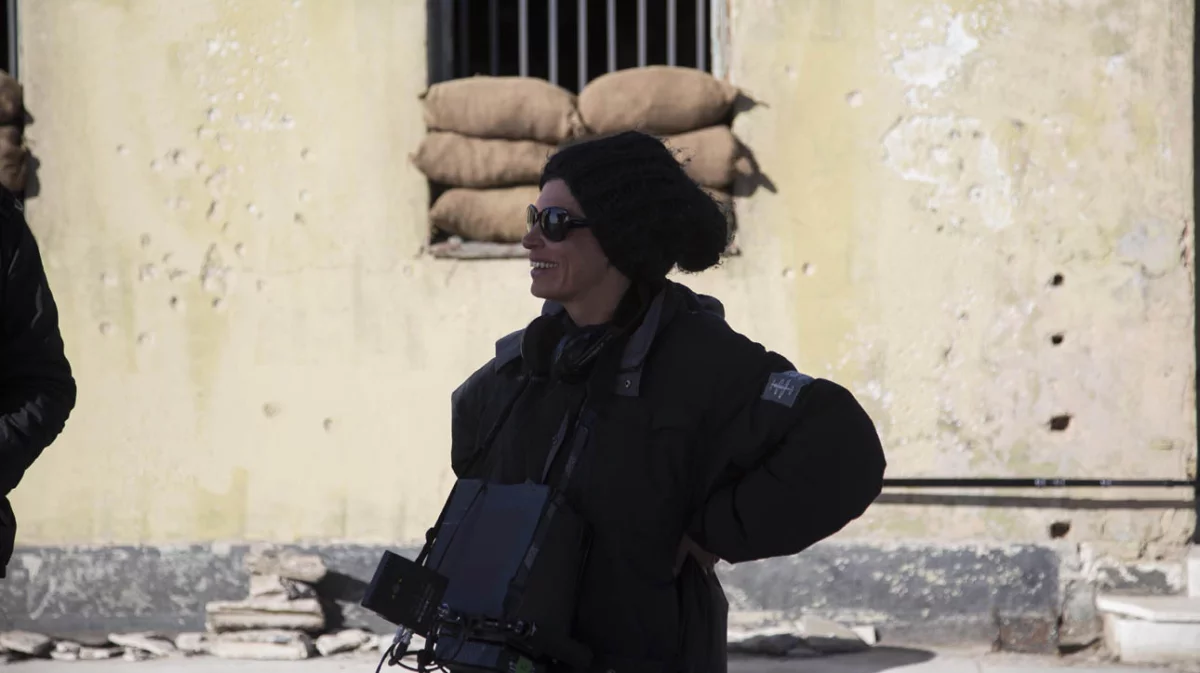
Where did you film everywhere?
Daphné Charizani: The story takes place in Germany and northern Iraq. But for security reasons, we couldn't shoot the film in Iraq, it simply wouldn't have been possible. We then looked for locations where we could shoot the film in Iraq. My Executive Producer has very good contacts in Greece and came up with the idea of producing the film there. We went on several location tours and finally found a location near Athens that convinced me and my Director of Photography Falko Lachmund and seemed credible to us. We did the main shoot there. The scenes in Germany were shot in the Cologne area. And then we did another shoot with a very small team in northern Iraq, in the autonomous Kurdish region around Erbil. For example, the destroyed village that you see in the film really was destroyed by IS.
Rojda was born in Kurdistan and is a soldier in the German army. When her mother flees Iraq and her sister goes missing there, she is transferred to her old home country to look for her sister. In Iraq, she trains Kurdish peshmerga fighters together with her comrades. But suddenly she finds herself in the middle of a battle and has to make a decision. The film was produced by PALLAS FILM, MATCH FACTORY PRODUCTIONS and VIEW MASTER FILMS
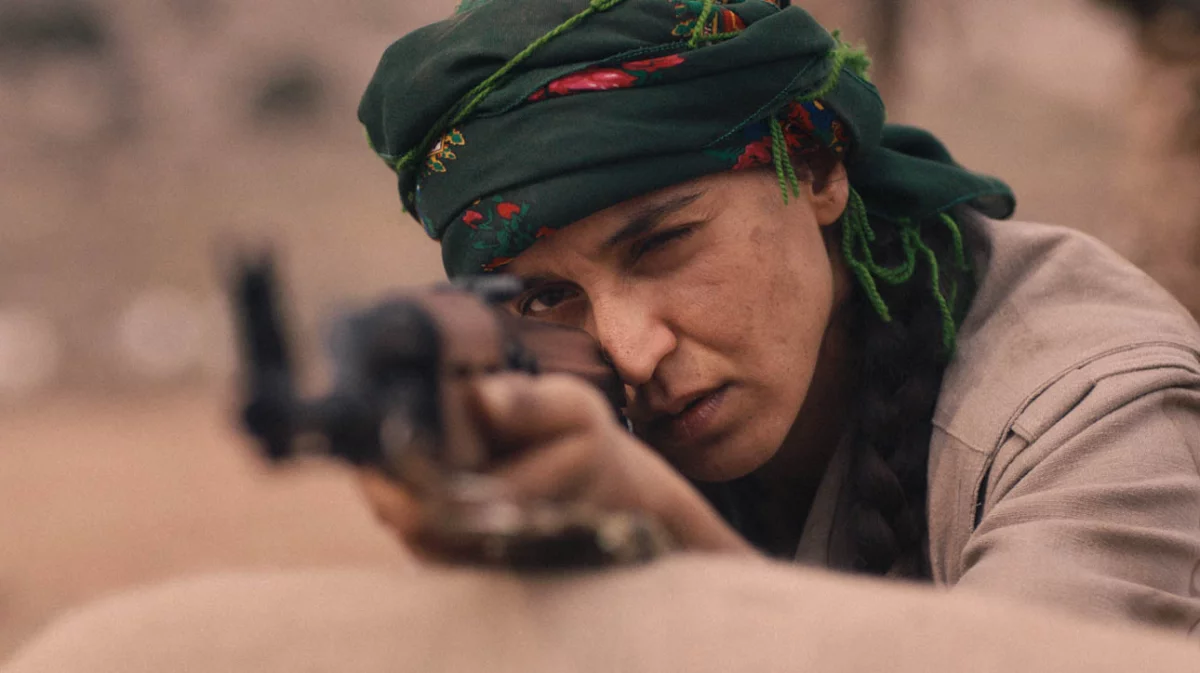
A few years have passed since your last cinema film "Madrid" in 2003 - what have you done in the meantime?
Daphné Charizani: I had a lot of experiences with my debut 'Madrid' that I first had to process. I then thought about what to do next. Then came my first child. Some of the cinema projects I was pursuing at the time couldn't be financed. That's not nice, but it's part of it. I wrote two scripts with Ina Weisse, 'The Architect' and 'The Prelude'. For 'Im Feuer', with a big shoot abroad, we knew from the start that it wouldn't be easy to get financing. But my Executive Producers Thanassis Karathanos and Martin Hampel as well as Claudia Tronnier from 'Kleines Fernsehspiel' believed in me and the story right from the start, and I'm really grateful to them for that.
How does it feel to screen a film at the Berlinale?
Daphné Charizani: It's great, because of course you're looking forward to seeing the film on the big screen after the long development - and then in such a great premiere venue as the Kino International. I'm a Berlinale fan myself and live in Berlin - and suddenly your own film is showing there, so you're really excited and nervous. And I'm really looking forward to the premiere, where I'll see the film with an audience for the first time. That's the moment of truth.
Is there already a follow-up project?
Daphné Charizani: Until a few days ago, my head was still in post production, now it's time to gather a little strength for the Berlinale. But of course there are two or three ideas that are on my mind and where I've already collected material.
more articles
.jpg?fit=max&w=800&h=2320&q=90&fm=webp)






